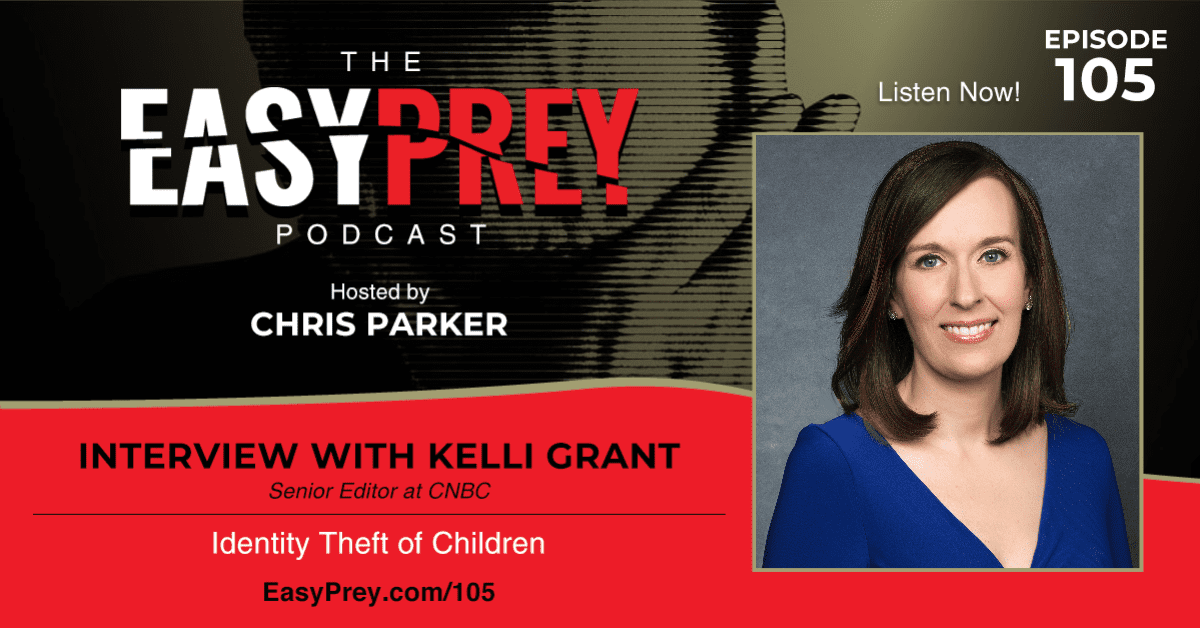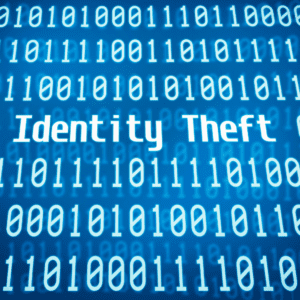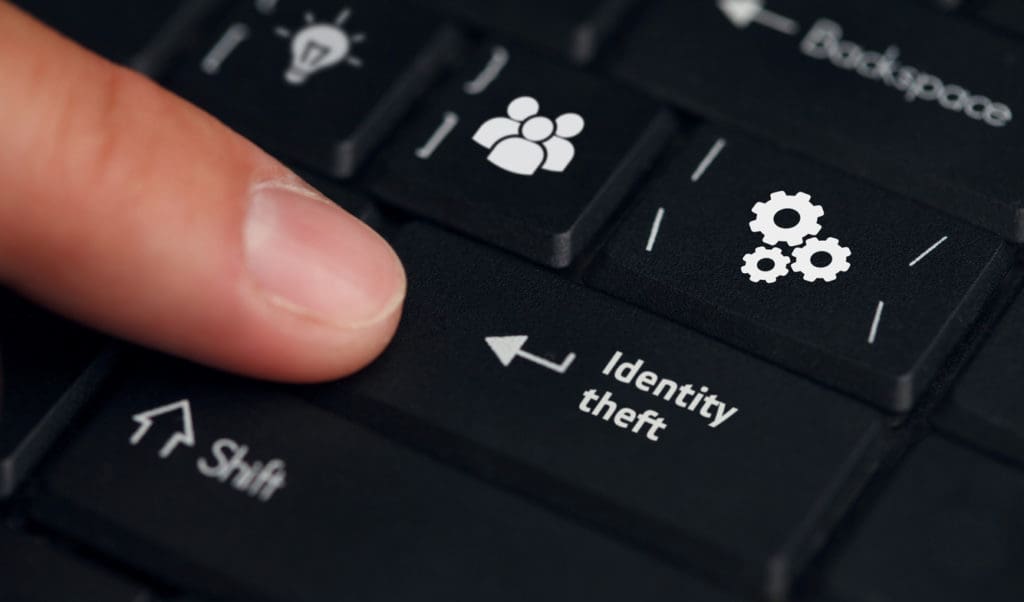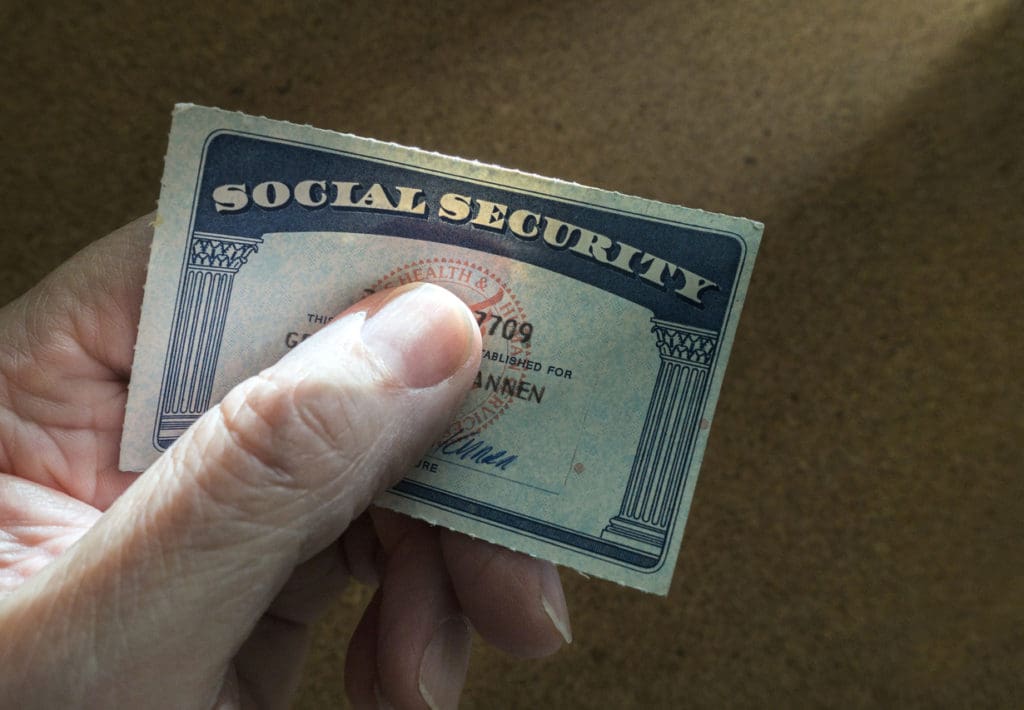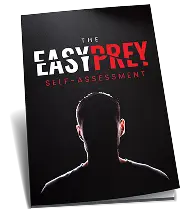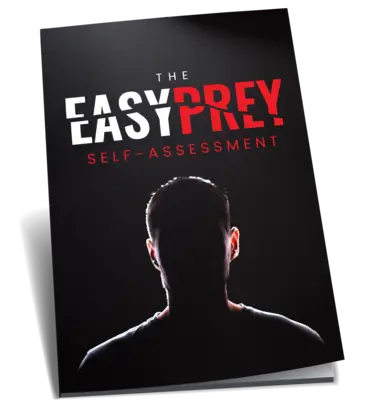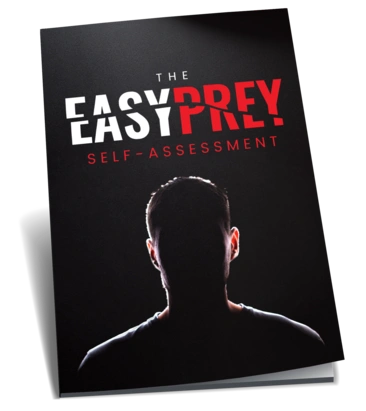Would it shock you to know that over 1 million children under the age of 9 have had their identity stolen in the last year alone? It is important to be aware of how this can happen and what you need to do to prevent it from happening to your children.
Today’s guest is Kelli Grant. Kelli is currently Senior Editor at CNBC and was the Senior Consumer Reporter at Marketwatch and Smart Money. Kelli has earned the certified financial planner designation which recognizes financial advisors who meet education, experience, and ethics requirements, and have passed tough industry exams. Her work has appeared in the Wall Street Journal, The New York Times, Kipplinger’s Personal Finance, Good Housekeeping, Family Circle, and other publications.
“Child identity theft can go undetected for several years.” - Kelli Grant Share on XShow Notes:
- [1:15] – Kelli shares her background and expertise in the field.
- [3:07] – What is the difference between identity theft and fraud?
- [4:12] – Identity theft of children happens mostly through forms and paper.
- [5:56] – In some cases, organizations that need private information in records don’t know how to manage it safely.
- [7:38] – In many cases, organizations that ask for a Social Security Number don’t even need it. Kelli advises leaving it blank first to see if they ask for it.
- [9:42] – Double check the questions being asked that may seem unimportant.
- [11:45] – Children are attractive targets of identity theft because it goes undetected for years.
- [13:47] – A blank slate can be manipulated into anything.
- [16:14] – Kelli lists some of the red flags that a child’s identity has been compromised.
- [18:01] – Kelli explains the pros and cons of freezing your child’s credit until they need it.
- [20:08] – Freezing credit is not fool proof and does not prevent all fraud and theft.
- [23:01] – Experts say they see more frequent attempts at Familiar Fraud during times of economic distress.
- [26:51] – Include your children in conversations about keeping private information safe and secure and how to spot a scam.
- [28:42] – Children shouldn’t necessarily know their Social Security Number until they are teens applying for jobs or financial aid.
- [29:41] – Be aware when data breaches take place and take the steps to keep your information safe.
- [31:50] – Cleaning up identity theft is very messy and difficult. Kelli explains that there are some insurance policies that are good resources.
- [34:01] – Insurance policies are easily available due to the high need.
- [35:18] – Leave certain pieces of information off of forms and don’t even mention it unless the organization asks.
Thanks for joining us on Easy Prey. Be sure to subscribe to our podcast on iTunes and leave a nice review.
Links and Resources:
- Podcast Web Page
- Facebook Page
- whatismyipaddress.com
- Easy Prey on Instagram
- Easy Prey on Twitter
- Easy Prey on LinkedIn
- Easy Prey on YouTube
- Easy Prey on Pinterest
- Kelli Grant on Twitter
- Kelli Grant on LinkedIn
- The Less People Know About Us: A Mystery of Betrayal, Family Secrets, and Stolen Identity by Axton Betz-Hamilton
Transcript:
Kelli, thank you so much for coming on the Easy Prey Podcast today. Can you tell me and the audience a little bit about yourself, your background, and how you got involved in what you are doing?
Right now, I am a senior editor at CNBC. I work at Grow, which is part of their partnership with the fintech app, Acorns, but my background is all personal finance. I've been a personal finance reporter for more than 15 years, and I'm actually one of the few working journalists who have earned the Certified Financial Planner designation. Usually, that's a word to financial advisors.

That usually takes a lot of work and classes for that, right?
It does. Classes, studying, experience, time, and a real beast of a credentialing exam.
It helps you, I'm sure, to be a better reporter, better understanding financial matters when you're talking about them with people.
I know a lot of money and I know how to track it down.
Let's start talking about identity theft of children's identities.
They are stealing the kid's childhood. In a lot of cases, their adulthood too. It's a really scary trend, and this is something that I have written about a number of times over the year in the course of my reporting. As a parent, it's something that concerns me too. It's unfortunately all too common.
There is some new data out from Javelin and they estimated it's more than 1.25 million kids in the US fell victim. They combined it as identity theft and fraud in the past year. This is just some data that came out in November 2021. When you drill into that, there are some really scary elements to it. More than half of these cases are in kids that are ages nine or younger, and about 70% of the victims actually know the perpetrator, meaning that's somebody who was in their life.
That's scary. As a point of clarity, what is the difference between fraud and identity theft when it comes to children?
I think the reason why they do combine it is there could be some blurring. Fraud, in a lot of cases, we think about it as adults as the person is compromising something existing. It's a charge on your existing credit card or some other mark like that.
Most people think of ID theft and fraud as something that happens digitally, but in a lot of cases with kids, is paper. -Kelli Grant Share on XIdentity theft is more about taking your personal identifying information and using it to create something new or perpetuate some sort of new crime. It can be anything from taking a Social Security number and opening up a new loan or line of credit in that person's name. They can use it to file tax returns, they can use it to create employment records, to create all sorts of medical bill havoc, and criminal mischief. It really can run the full range.
That's scary. Let's start from the beginning. How does identity theft against children actually happen?
There are a lot of different ways that this can happen. There's some separate data that came out of the University of Texas. In terms of how this happens, you'll see that in a lot of cases, it's actually on paper. Most people think about identity theft and data fraud as something that happens digitally—you’ve got that nameless, faceless hacker—but in a lot of cases, this particular thing with kids ends up being paper.
It's everything from easy access. You've got papers on the table or in the dining room and a friend or relative can see them, or they just know where in your house you keep these things so they can go into the filing cabinet they have regular access to. It could be things like stolen mail, or in the case of business access, you've got records at your doctor's office where you filled out a form when you signed up and you've got your kid's information in there, including maybe you gave them a Social and then that's something that is either not properly stored, not properly disposed of, or someone is bribed to get access to it. Lots of unfortunate scenarios within there.
When I think of a doctor's office—a tangential thought—I remember when I was in college, they used your Social Security number as your student ID. It was printed on everything, and you had to put it on everything when you're going places. I look back at it now and it was amazing that I wasn't a victim of identity theft.
They moved largely away from that, thankfully. For a long time, there were still IDs where you would have your Social either on it or that would be closely tied to something else you had signed up for. Definitely, something they try to avoid these days.
Is it that these places are mishandling the papers? Obviously, if someone comes into your house and rifles through your documents, that's one thing. Is that you're having employees stealing stuff or is it just mismanagement of the documents at some of these places?
It can really range. It might be that the employees are mismanaging them. In some cases, the businesses don't necessarily know the value of some of the information that they're collecting or how to properly store it. It's been a big problem. For example, financial advisors, not particularly related to children here, but they have been trying to figure out the right ways to store and maintain the records, which obviously includes a lot of personal identifying information.
It's a challenge for small businesses that have to figure out how do they avoid hackers. How do they avoid bad actors that might have access to their offices? These are folks who are professionals in other areas. They're not necessarily tech professionals or cybersecurity experts, but they have to figure that out and kind of put on that hat to keep us safe.
When it comes to doctor's offices, do we need to be providing Social Security numbers? Because that's one of the things like, “OK, you're performing medical procedures or checking kids' health, you should have an insurance identifier number.” Why do they need a Social Security number?
Well, exactly. That's one of the things that this is sort of a holdover from is it is another way to identify you, track you, and maybe get you to pay your bill if you hadn't already. My cell phone does that just as well and I'm much happier to provide that. My first big tip for consumers is really to think about where you might be giving out this access and try to keep that information out of circulation.
Usually, when you go to a doctor's office or schools will sometimes ask for it, camps, after-school activities. It might just be a space on the form, maybe they don't even know why they think they need it. I always just leave it blank and I wait to see if they will ask me to provide it. This is anecdotal, of course, but I have never been asked for it. They're usually just happy to accept the form with my name, address, whatever other information, without that key detail.
That's interesting that they have it on the form, you leave it blank, and no one's ever questioned why it's blank.
Yeah. My husband and I have this conversation because occasionally, he'll be like, “Do we have this bit of information or that bit of information for the kids?” I'm like, “No, you don't need it, you don't need to give them that.” I feel the same way about getting my driver's license when they ask for some of that too. You can find me in other ways, but you do not need my driver's license number.
I guess just a little bit of that is just a throwback too. At some point in the past, somebody thought it would be a useful piece of information to have for some reason and it's just always been on the form since then.
Exactly.
I guess it's the same sort of thing if I'm creating an account on an online store and they asked for my birth date. “Why do you need my birth date? Do you really need my birth date? I'm sure you want to send me a coupon or something like that to get me to spend more money with you,” but it's just one more place where information can be exposed.
Exactly. I think a lot of that is like we fill it out by rote—we really want that coupon, we don't see the harm in it. The problem is, for a lot of identity theft and just data breaches in general, these thieves take bits of information and then use it to crack other things. Maybe finding out your birthdate, you feel like it's innocuous, but that ends up being a security question or something that they can use when they call and say to your bank, “Oh, I'm locked out of my account.” The rep might say, “OK, ma'am, please tell me your full name, your address, and your birthdate.”
You have to be thinking about, as a consumer, unfortunately, all the different pieces of info and ways that might be used. -Kelli Grant Share on XYou have to be thinking about, as a consumer, unfortunately, all the different pieces of information and ways that might be used. You'll even see it on social, and this is another thing to watch out for with kids, is those popular memes, quiz questions, or things you'll see where it'll be like, “Tell us your first initial, your pet's name, the street you grew up on.” Or it's some combination of things that seems kind of funny and innocuous. It'll pop out something that tells you supposedly about yourself, but really, when you look at this, you're going like, “All right, I see this answer, this answer, and this answer” and I'm like, “Those are security questions right there, no question.”
Yeah, I always chuckle and cringe, I suppose, at the same time whenever I see people answering those on social media. You know those are all security questions. You really shouldn't be exposing that. Your high school mascot, where you went to elementary school.
This is why you and I don't get invited to parties. We're the downers of the group.
I have a friend, he intentionally does not use his real birth date on anything. He has his Facebook birth date that rolls up every year and everyone starts wishing him a happy birthday. He just kind of chuckles to himself because he knows who does and doesn't know him based on…
By when they wish him a happy birthday.
He's like, “I'm not giving Facebook my real birthday. I don't need to expose that information.” Ever since, it's the running joke.
I love that.
Let's get back to children. We talked about Social Security numbers on doctors' forms. What other places may be inadvertently collecting or that were inadvertently giving up our children's information?
I think actually one of the things we should talk about, too, is why kids make such great targets or what […] attractive targets for these sorts of criminals. It's twofold. One is that your kid—compared to when they're stealing adult information—it's a clean slate. They are really not worried about, “Does this child have bad credit or will I be able to take out a loan?” They really can do a lot more damage, potentially, with that. You and I might spot a fraudulent charge on a credit card pretty quickly; we might be checking our credit report. Child identity theft can go unnoticed for years.
You and I might spot a fraudulent charge on a credit card pretty quickly. Child ID theft can go unnoticed for years. -Kelli Grant Share on XThere is an identity theft researcher; her name is Axton Betz-Hamilton. Her story is really compelling. She's now into adulthood, but when she was 19, she went off to get her first apartment in college, and that's when she discovered she had been a victim of identity theft, and she had years and years of debts on her credit report when she pulled it.
This was undiscovered for years because she had not thought to check her credit report. She didn't have a credit card, she didn't have any of this stuff that she knew of. The twist there is that the person who stole her identity was her mother. A really, really fascinating story. She's actually written a book about it now. I would definitely suggest checking that out.
What's the name of the book?
I did not bring that in my notes, sorry.
That's OK. We'll find it and put it in the show notes. It's interesting that the children's identity is this clean slate. Is it also then used to build fake information into because there's no existing information there?
Yes, there's this thing called synthetic identity theft, I'm sure you've talked and read about that. For the listeners, the basic idea is that the identity thieves will compile some stuff that's real, some stuff that's manufactured, some stuff from different sources, but if they have kind of a clean slate with a Social Security number, they can cobble that together and help really build a new identity for someone. It really doesn't look like you've got a five-year-old that's applying for a mortgage. They can piece that together so that it just becomes a really attractive target.
That's crazy. Do they have an idea of how much money is involved in this kind of industry of creating fake identities based on children's?
In terms of the numbers, this new Javelin data that, when they were looking at that, their estimate was $918 million loss to child ID fraud just in the past year, and the average affected family loses about $1100. Of course, there's some flex in there, I would say, because certainly, for some cases, people are able to fight this, they're able to wipe out those balances, but they do spend a lot of time and resources fighting it.
They call it familiar fraud when the perpetrator is someone you know. -Kelli Grant Share on XWhen it comes to certain types of fraud—they call it familiar fraud when the perpetrator is someone you know—it can be really hard to fight that because to a certain extent, the lenders and even the courts and police authorities would have a hard time disentangling. If a husband steals a wife's identity, it's like, “How do you not know that your husband was opening these cards in your name? How do we know that you really had nothing to do with this?” There's a little bit of that element in there that makes it tougher to fight.
I suppose to some extent, even if it's a child whose parent has stolen their identity, you now have to do things that will potentially put your parents in jail. As much as you're frustrated by the experience or upset with the experience, there's always going to be a certain amount of, “Well, I don't want to be the one who puts my mom in jail,” even though it really wasn't you, it was their behavior.
Yeah, that just really makes it complicated with this because in the end, even if people have suspicions—maybe it is a parent that's stolen the identity or the parent knows that it was another relative who had access to the house—it does complicate your willingness and ability to fight this.
Yeah. Let's work backward into this. If your child's identity has been compromised, what can you do to help restore it back to your kid, to remove all the fake records, and whatnot?
It's going to be tough to fight it. I think probably the first thing to say within this is to think about what the signs might be that your child's identity has been compromised. Sometimes, the early stuff is going to be things like pre-approved credit card offers showing up in your child's name, something that you would deem more like adult mail for a child. People will laugh and be like, “Oh, my kid got a jury summons,” this happened, or that—that should be a red flag. Missing mail just generally is a big issue.
People will laugh and be like, “Oh my kid got a jury summons.” That should be a red flag. -Kelli Grant Share on XIn other cases where you might hear about it—I’m thinking, like, data breach notifications, sites that involve some of your child's information, or if you get something like indications of tax fraud because when you file your taxes, you've got your Social listed on it, you've got your children's Social listed on that as well. That's when you would want to take steps, including pulling credit reports to see if your child has a credit file.
They don't necessarily have one, that's sort of a twist with kids where you and I could easily pull our credit. When you're young, there shouldn't be anything to pull. That will be your indication that nothing has happened. If there's something for you to pull, then you certainly want to pull that credit report, get a sense of what is there. You can now put a freeze on your child's credit report. There's some back-and-forth there as to whether that's a good idea.
Credit freeze essentially means it's frozen, it's locked tight. Nobody can use that Social to apply for new credit or really amend their credit that includes the person. Legitimately, if I wanted to go and apply for something for myself and my credit is frozen, I have to lift it.
There are a couple of schools of thought on whether it's a good or a bad thing, because if your kid doesn't have a credit file, you can freeze your credit proactively and you can freeze your child's and it can be a really smart move, but you'd have to create a credit file for them to freeze it.
Then to later go in and unfreeze it so they can apply for financial aid, they can apply for loans, and that sort of thing, you have to have a PIN. You have to have a good password and information management yourself because you don't want to lose that PIN when you've frozen it for your six-year-old and then you need to remember it in 12 years. You need to make sure that you have good management for that and then that it's also somewhere else that, God forbid, something happens to you that somebody else can help your kid down the line.

It's almost the sort of thing that if you're going to do that for your child, you really have to think, “OK, if I move, then I need to unfreeze it, push my new address, push the child's new address in there, and then refreeze it.”
When you move, you wouldn't necessarily need to. It's more about when they actually needed a credit file for something down the line, that would be something where somebody would be checking their credit legitimately, you'd want to make sure that that was accessible to them.
I guess there are more ways to create a new PIN other than sending it to the original mailing address.
Yes, but it's going to get complicated if you don't remember that initial PIN or you don't save it in a safe place, all of the things that we know that we can do with passwords.
Assuming that that PIN is in the right format 10 years later.
Correct.
Because who knows what they're going to be doing with their platform and their system so many decades later.
Even then, the freezing is not foolproof because that is really just for financial identity theft. If someone was going to use your Social to try to gain employment, file a fraudulent tax return, or do any number of other things, the freeze is not going to prevent them from doing that. That's just really a red flag if they wanted to take it and go out and open new loans or lines of credit in your kid's name.
Would it also make sense to—and I haven't thought this question out to its conclusion yet—to create tax record accounts? Not in terms of filing, but associating a tax ID number, Social Security number, with a login that you've already created so that you can go in and check on tax filings?
It's always good to have redundancies so that you can make sure that you're monitoring things. Even credit monitoring services, you really want to hunt around and see if you have access to that for free for one reason or another, or if you do need to pay for it, what that is involved. If you're doing that for yourself, it can't hurt to have them keep an eye out for you to know your children as well.
Anything with tax documents, anything that you know that might be a risk, you want to make sure that that's where you're really using your smart password hygiene. You are not reusing passwords or logins that you put elsewhere. Same thing with bank accounts. You really want to make sure that you're safeguarding your most important information.
Not leaving your PDFs of your 20 years of tax data on a USB drive sitting on your desk.
No. When I was doing this story on paper ID theft, one of the experts involved said, “People, if you had $1000, you wouldn't leave that on your kitchen counter when you have people in the house,” but we will happily leave out bills, tax returns, and all sorts of other things in places where we really shouldn't. We're just very relaxed about having that information out and we need to be more cautious with it.
In IT, there's this concept called the evil made of you don't want to let the custodial staff be able to access computers and things like that. I think the same sort of thing applies to our homes, not necessarily that we're casting dispersions on maids, but anyone who could come into the house and quickly grab a sheet of paper, grab that bill sitting on the kitchen counter, or take a photo of it is always going to be a risk.
It does seem like here, at least with the kids, it's often though even people who are even more close and trusted. It is smart to understand anybody that's coming into your home, even briefly, and be thinking about what they might have access to. It’s really the friends and family members that you want to watch out for here.
That initial compromising of the child's ID is not always meant in a really malicious way. It can be parents who are struggling. -Kelli Grant Share on XSomething that I thought was really interesting, too, that ties in with this is the experts say they see higher rates of the familiar fraud when the economy is bad because in a lot of cases, maybe that initial compromising of the child's ID is not always meant in a really malicious way. It can be parents who are struggling to keep the lights on or to buy groceries. Their credit is bad, they can't get that loan they need, or the funds to be able to keep the household running.
That is something that the experts have talked a lot about is that they'll see these cases where that's how it starts. The child's ID is compromised to keep the lights on and to buy groceries, but then, unfortunately, it may spiral. Even if just the family continues to struggle, then it's not just the parents that are hurt by this. It ends up being that the child is as well because they have defaults, late payments, or other things on their report.
In some sense, it sounds like—at least when it comes to parents and even some familials—there isn't a whole lot that can be done to prevent it.
Unfortunately not. If there's somebody who's close to you or the parent who's doing it, we're the people who are applying for that Social Security number for the child when we're leaving the hospital. It's unfortunate, but that is the case. Then if it's other relatives, or even as a parent, you're just trying to think about who else might know this and have access
We've had people asking for my kids', “Oh, can we get this information because we want to set up a 529 plan or we want to put them as the beneficiary on the life insurance.” That's really where you have to be able to say, “Do you really need this information?” In most cases, they don't to be able to achieve those very kind goals. You really just want to keep that under wraps, whether the intent seems good or bad.
I guess that's the hard thing is in the same way that your doctor's office asked for the Social Security number, I filled out those life insurance policies and there's a spot for the Social Security number there. If you ask, “Do you need it?” They'll tell you, “No, we don't need it, but it could potentially help in the future.” They don't voluntarily say, “This is optional or you don't really need this.” If you've got a will and everybody knows the person who passes away, it's very easy to find the beneficiaries.
They can definitely say it's this Chris Parker, it's this Kelli Grant, but it gets complicated, obviously, if you were one of, like, three Chris Parkers in your family and somehow nobody gave you middle initials or numbers afterward to help designate, then maybe you need that, but for the most part, no. It's about being able to track you down and identify you. As you said, that's often clear through other documents and family records.
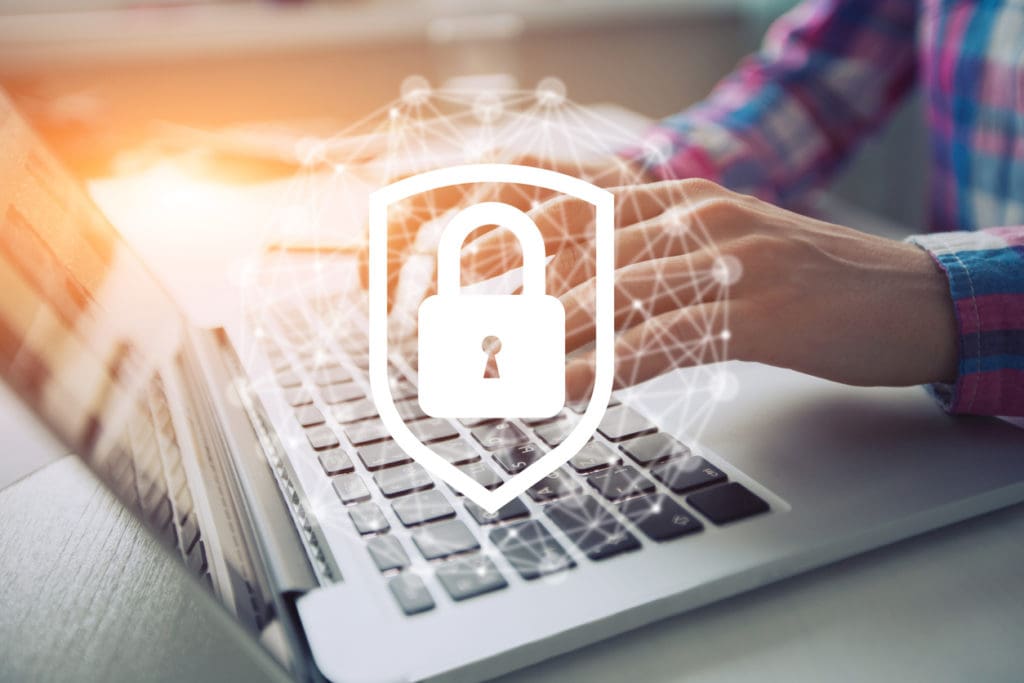
Yeah, they're not going to be looking for some random Chris Parker when someone passes away to give me money.
We can only hope. That could be a whole other podcast episode.
That would be a fun episode. People who have gotten money from random people, although that sounds like an email scam.
I will just say, yeah. I've got a lot of those in my inbox right now.
They're probably not legitimate. For parents who are not trying to steal their children's identity, what kind of preventative things could they do to mitigate the risk?
It's going to be important to include your child in a lot of these conversations too because there's just a point where kids are on the internet younger and younger. You want to be able to supervise them where you can and talk to them about what you've learned about how to keep information safe and how to spot a scam.
In the end, they might be filling out sweepstakes forms, contest entries, or communicating with people online that would be asking them these sorts of questions trying to fish for information, and they should have an understanding of what is smart to give out, what you really want to keep hidden, and why people asking about certain types of information could be a huge red flag.
I've tried to think of at what age was I aware that I had a Social Security number and it was probably well before I understood the ramifications of what giving it out would be.
I can remember, when I first had a wallet, that I had a photocopy of that in my wallet. Now, as an adult, I just cringe. I think, “Oh, don't do that.”
I think I carried the original with me.
Oh no, even worse. If that's not clear, that is certainly something I think people should avoid. You really don't want that in your wallet. There was a point where people would put it on checks—their Social Security numbers. Certainly, for your kid, there will be a point where they need to know that they have a Social Security number; they will need to know what it is. Probably, that's more when they are teenagers, maybe applying for first jobs. It seems like that would be the first point that's really relevant.
Eventually, when you're applying for financial aid, that's when a lot of these cases come to light. Applying for a first credit card, they might need it. By and large, you can have some good conversations with them about what it is and how important it is before they probably need to start knowing that number.
I’m trying to think of what other things we should be preventative of. I guess really considering the freezing the credit, the ramifications of that, and the hassles of it. Monitoring is probably a better option for most people.
Why not both? Freezing the credit, monitoring the credit, really just trying to keep key documents out of sight, watching for red flags that would indicate identity theft for you or your children, or just even a data breach for you or your children.
There was a recent survey out—I’m forgetting from where, but one of my reporters is working on it this week. Just that a lot of people, when there is a data breach, they just don't take smart actions afterward like changing their password or checking to see what information was compromised.
It's always good to pay attention if you get those notifications. What was compromised, what you need to do, and be aware afterward, because a lot of data breaches, the secondary consequence of it is that you might get spear-phishing calls with some of the information and they're trying to leverage it. Just being aware of things that could indicate there is someone actively trying to use your information or leveraging it into something bigger.
I know identity theft is this constantly evolving disaster, so to speak. There's someone I knew who—this is probably more than 20 years ago now, probably 30 years ago—was a victim of identity theft. They found out because they got a letter in the mail basically saying that there's a default judgment against them for failure to appear in court over unpaid taxes in another state, and they were like, “I don't pay taxes in this state.”
We started to look into it, pulling their credit, and all the stuff and found out that there were people in half a dozen different states using this person's Social Security number. The name for employment, of course, none of them were paying their taxes. It became this real disaster to unwind because identity theft was such a new thing to the legal system. Yes, you very clearly have been a victim of identity theft, but to get it off of your record, you need to pay the taxes.
Then you can petition to get the money back because of the crime that happened, but because you never showed up to court, this has already gone to court and you've already lost. So you have to jump through all these hoops to unwind it. I think it's definitely better now, but once it gets that far, even now it's still very messy to clean up identity theft.
Yeah. I think that's where those credit freezes and that monitoring can really help. It's also worth paying attention to protections that you might have in play. There are specialized insurance policies. Certain homeowner's policies include an identity theft rider or provision there. Some credit cards have extra perks or protections in there as well. Obviously, if you have a credit monitoring service, usually they will offer some help.
Even for some employers, there's often some sort of an employee benefit that helps with unraveling identity theft and fraud. -Kelli Grant Share on XEven for some employers, there's often some sort of an employee benefit that helps with unraveling identity theft and fraud. If you are affected by it, it's smart to check and see what resources you might have available to you that are either going to help you unravel it or at least help mitigate the costs and time of unraveling.
Usually, are these things that you have to have in place before you find the identity theft?
It depends because it's tied. There are services and nonprofits too like the Identity Theft Resource Center that will try to help you as best they can once you've been victimized. In a lot of cases like with the insurance, you're not going to be able to go out and switch your homeowner's policy and then be, “I'd like to take advantage of this provision.” You wouldn't need that coverage in place. It's always good to check and see what you might already have before you go out and look for something that will fill that need.
I guess there also is going to be a difference between credit monitoring and identity theft insurance. The credit monitoring service may or may not help you clean up issues.
Yes, you always want to look at the terms and see what they cover and to what extent because as we laid out, there are a lot of different ways that this can go down. They might be more helpful with certain problems than with others. For sure, your credit card is going to be more concerned with things that affect that credit card, potentially, than other types of identity theft. You might be surprised at what they will help you with.
The good thing is credit monitoring and identity theft insurance are almost ubiquitous now. Whoever is selling you your auto insurance probably also sells identity theft insurance. Maybe not, but there used to be very, very few places that would sell the insurance. Now it's pretty much everywhere that you look.
Unfortunately, when they see a need, that's when they step in. This is something, as we pointed out, there is a need.
Are there any other things that we have missed talking about with respect to children's identity theft?
I was looking through my notes; I really just can't emphasize enough that one of the best things you can do is avoid putting these numbers out in circulation. We're asked for them far more often than we need to give them, and that's one of the best things you can do.
Just always ask why they need it. “Do you really need this? Will you not do business with me if I don't give you this number?”
I think, honestly, sometimes don't even ask unless they push back. See if they're going to let it slide because I really have found that most of the time, they are not going to come back and ask you for that.
I think that's probably the best advice. Don't be confrontational about it. Just don't put it on the form.
Just don't put it on there. Wait for them to ask and force the issue if you can. Even then, I think you have the right to ask, “Well, what are you going to do with this information? How are you going to protect it? Why?” All the whys.
Not questions that the frontline people at the billing desk want to answer but things they […].
Maybe that means they're not going to really push you on it too.
That's hopefully the case. If people want to find you on social media, where can they track you down?
I'm on Twitter, @kelligrant. My website is kelligrant.tv, and of course, you can check out my reporting and my reporters on cnbc.com and grow.acorns.com.
That's awesome. Thank you so much for coming on the Easy Prey Podcast today.
Thank you.
